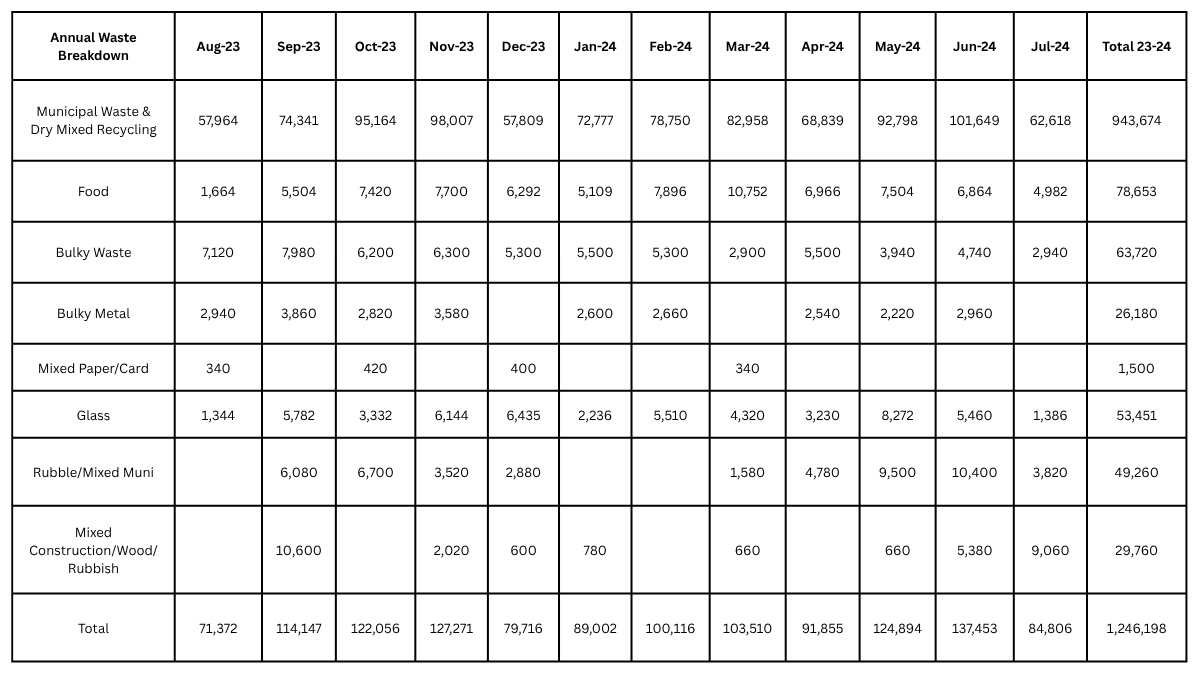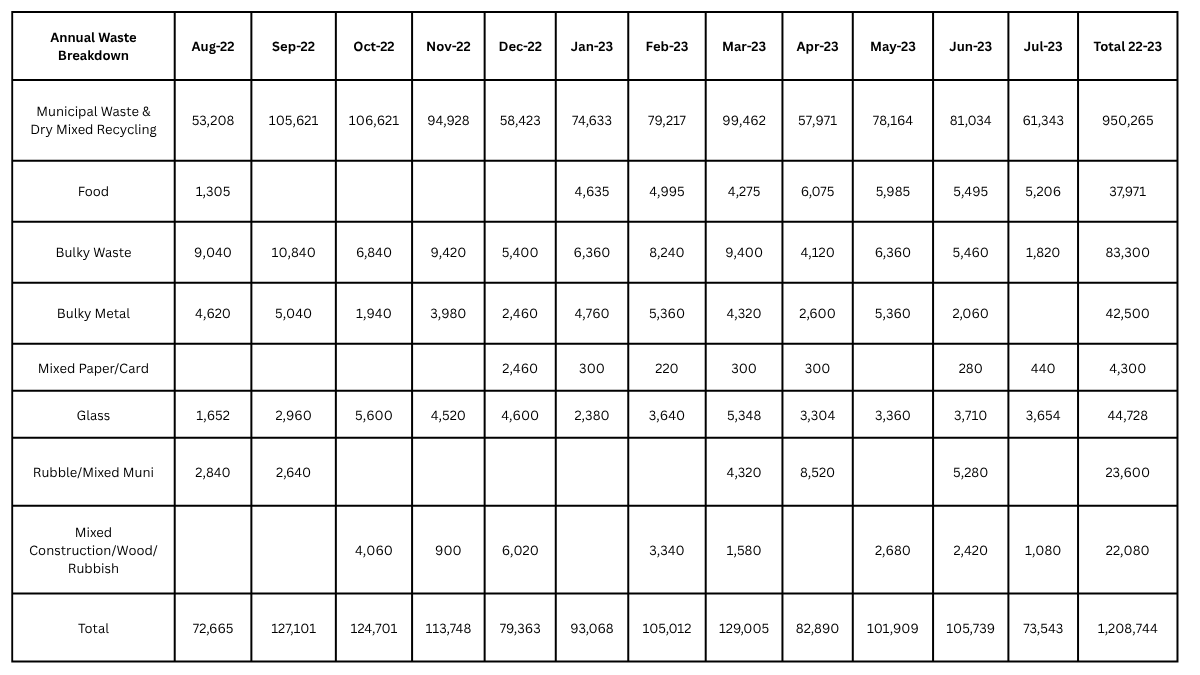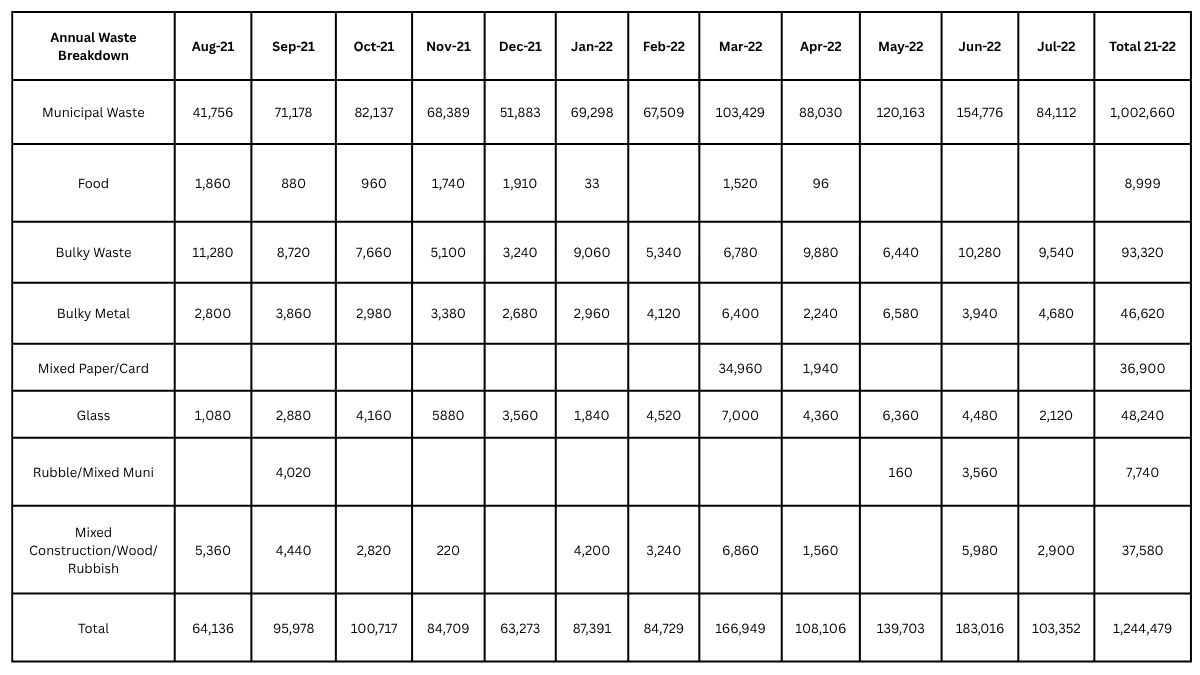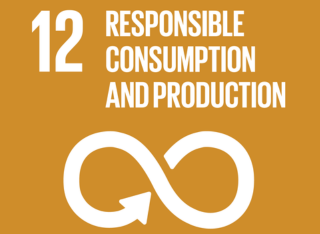
Waste management
The University's Operational Waste Management Plan set outs our aims to divert 100% of waste from landfill and turn waste into a resource, pushing it up the waste hierarchy by conversion, recycling, reuse and reduction.
Our Policy Statement: Operation (PDF) includes the objective to develop a circular economy protocol within procurement, supply chain, construction, catering and waste management activities to reduce negative environmental and social impacts. This Policy extends to our outsource suppliers and contractors.
To achieve this, we measure the amount of waste sent to landfill and recycled, working with our waste contractor 'Chambers' and their sustainability policy.
How do we sort our waste
To help staff, students and visitors easily sort waste, we have recently moved towards segregation across four waste streams:
- Mixed recycling - paper, card, plastic bottles and containers, cans and cartons.
- Food waste.
- Glass.
- All other waste - including single-use plastic wraps, coffee cups and crisp packets.
We use this method as it limits the potential for contamination of waste streams which can reduce recycling rates. The waste undergoes a further segregation process off-site to ensure each material can be recovered separately and sent for further processing. All our waste is weighed by our waste contractor as segregated amounts. With the data being used to drive improvements to recycling and reuse rates.
Waste Auditing
The University collects data on waste segregated on a monthly basis:
23/24 waste data:

22/23 waste data:

21/22 waste data:

This data has driven the University to undertake a campaign to separate out as much food waste as possible as it contaminates our recycling and means that more materials can’t be recycled and end up being used for energy from waste.
As well as this data, the University carries out spot checks to ensure segregation at the waste contractors’ site is being undertaken. A recent survey was undertaken on 23rd February 2023 and collected the following data again highlighting the need to focus on food waste segregation as it leads to contamination and disposal via waste to energy:
| Waste type | Weight kg | Percentage |
| Total | 4060 | 100 |
| Waste to energy | 3008 | 74.0 |
| Cardboard | 640 | 16.0 |
| Hard plastic | 25 | 0.6 |
| Bottles plastic | 58 | 1.4 |
| Glass | 155 | 3.8 |
| Metal | 62 | 1.5 |
| Cans | 12 | 0.3 |
| Other | 100 | 2.4 |
Key successes
Other successful measures we have taken include:
- We have taken a pledge to stop providing single-use plastic cups across campus and replace these with compostable cups which are 100% vegetable derived.
- The introduction of Vegware compostable cutlery, plates and cups has significantly reduced the use of single-use plastics across our campus.
- The introduction of food waste bins in our residences has resulted in 60 per cent of additional food waste being separated and composted.
What's next?
Our long-term goal is to have all staff, students and visitors use a reusable cup or bottle at our refill points. To make it easier to do so, the university offers 106 refill points around campus, allowing staff, students and visitors to refill their bottles.
Our team is actively developing plans to promote furniture recycling on campus and enhance our waste segregation efforts. We're collaborating with suppliers to minimize packaging waste, enhance construction waste reporting, and donate or repurpose furniture and appliances left behind by students at the end of each semester. Our goal is to make these initiatives more visible and effective.
Policies relevant to our waste management
- Policy Statement: Operations
- Procurement Procedure - includes our practices for minimisation of plastic use and disposable items
- Control of Hazardous Substances Procedure
- Sustainable and Ethical Food Plan
Sustainable Development Goals
The University's work to turn waste into a resource aligns with the UN Sustainable Development Goals.
